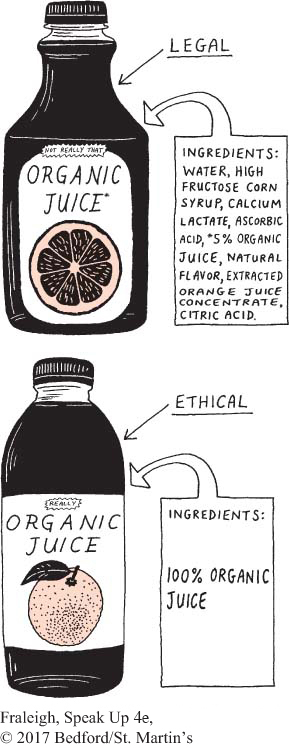Legal Speech Vs. Ethical Speech
As we connect ethics and public speaking, it is worth observing that many people in the United States often confuse (sometimes intentionally) ethical speech with legally protected speech. Although these two concepts sometimes overlap—
Focusing on legally protected speech, by contrast, refers to using the law as your boundary for what you may say and how you say it. Thus, with this approach, you would make decisions about telling the truth or withholding information based on whether there is a legal requirement to take a certain action or a legal consequence for violating the rules. When you rely on legal guidelines for acceptable speech, your decision-
Page 72

It’s vital to note that far more types of speech are technically legal than are strictly ethical. In the United States, the First Amendment to the U.S. Constitution mandates “freedom of speech,” and this freedom allows for a vast range of legally protected statements. In fact, there are relatively few exceptions, and these typically are handled in narrow terms such as slander (intentional falsehood about another person), fighting words (words meant to provoke a violent response), and obscenity (hard-
As political speech, Trump’s incendiary, insulting comments were protected by the Constitution, but that did not make his speech ethically responsible. Not suprisingly, his comments caused a backlash against him, including a decision by Spanish-
Make sure that you understand the distinction between ethical and legal speech when crafting your own presentations. When you consider ethics, you are doing more than just what is legally required: you are doing what is morally correct for your situation.
Page 73